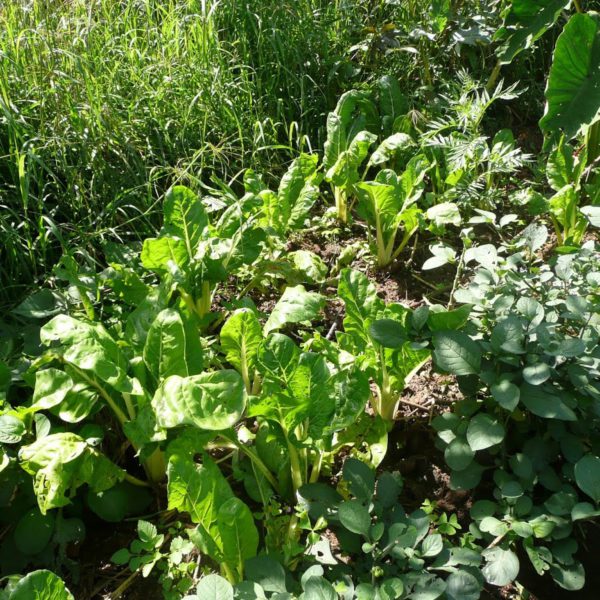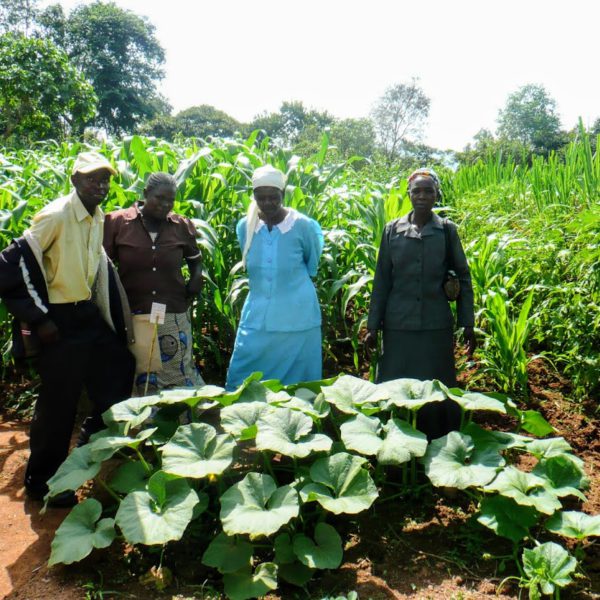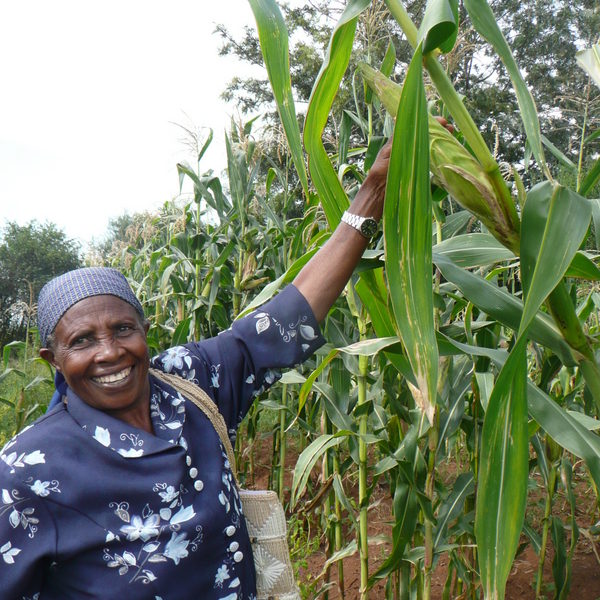THE CHALLENGE
In addition to the lack of information on good farming techniques, the local farming communities face challenges from highly depleted soils, small landholdings, lack of quality seeds, and dependence on expensive chemical inputs which further deplete soils. All of these factors limit the viability of small-scale farms and contributes to the food insecurity of the farmers and their families.
OUR APPROACH
SOFDI has been one of the first, if not the first organization, to introduce organic farming to subsistence farmers in Western Kenya. This holistic farming system relies primarily on locally available (on-farm) and renewable natural sources of nutrients, which has proven to be the best solution for otherwise resource-deprived farmers to improve yields substantially and sustainably.
Introducing organic farming methods requires the right knowledge and skills, which we deliver through extensive training programs in the field. This includes comprehensive training on the intensive and integrated farming systems where land utilization is optimized, natural methods of crop and weed control are introduced, and implementation of improved seeds can result in much higher yields – quadrupling them or often even more. All this with independence from expensive chemicals that not only restrict sustainability, but also deplete the soil and harm the environment on a wider scale. Instead, the combined systems that we teach our farmers and advocate through our programs preserves the environment and enhances the natural resource base.
Analysis of the soil in some of the areas where we work has revealed high levels of acidity, which is known to restrict the full uptake of nutrients. In such cases, we support the application of certain minerals for a limited time to speed up the process of restoring the soil to a healthy and productive state.
Read more:
https://en.wikipedia.org/wiki/Sustainable agriculture
https://en.wikipedia.org/wiki/Integrated farming




